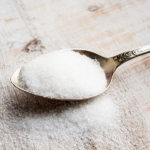By David Blyweiss, M.D.
You’ve seen the commercials—an attractive woman plagued by dry eyes, a condition that can affect a third of those over the age of 50. Her only hope? A prescription for Restasis, a drug designed to make tears for her. The problem with this scenario is that this remedy doesn’t work for everyone. Of more concern, Restasis can cause a burning sensation, eye redness, discharge, watery eyes, eye pain, foreign body sensation, itching, stinging and blurred vision—all of the symptoms you are trying to relieve. Artificial tears aren’t any better since they are just a quick—and temporary—fix for dryness.
Tears are essential to lubricate the eye and maintain healthy vision. They are made up of a combination of water, oils, mucus, antibodies and special proteins that help the eyes resist infection. These components are secreted by special glands located around the eye. Dry eye, technically known as keratoconjunctivitis sicca, occurs when there is an imbalance in this tear system—the eyes either don’t make enough tears or the tears evaporate too quickly. Unfortunately, conventional medicine doesn’t have a cure for this irritating problem. But a new study out of Finland offers a glimmer of hope in the form of a little-known nutrient called sea buckthorn.
Sea buckthorn is a shrub that grows in China, Russia and the Netherlands. Originally grown to prevent soil erosion, it’s come to the forefront lately because of its rich nutritional profile. The plant’s golden-orange fruit provides hefty amounts of vitamin C, vitamin E, lycopene, zeaxanthin, oils rich in essential fatty acids, and other healthful components that benefit eyesight. Now, this new study suggests that sea buckthorn can reduce the symptoms of dry eye, too.
The researchers recruited 86 people between the ages of 20 and 70 to participate in the double-blind, randomized, parallel trial. Each of the participants were randomly assigned to receive either two grams of sea buckthorn oil or a placebo oil every day for three months. People with both types of dry eye syndrome were included – people who can’t make enough of their own tears, and people whose tears evaporate too quickly.
The results showed that all the participants experienced an increase in tear evaporation, but the people receiving the sea buckthorn supplement experience a significantly less evaporation. Furthermore, those who stuck with the regime and took at least 80 percent of their supplements experienced the greatest reduction. The people in the sea buckthorn group also had considerably less redness and burning.
The researchers conducting the study believe that the linolenic acid in the oil is responsible for reducing inflammation that contributes to dry eye syndrome. They also noted that sea buckthorn oil is a rich source of vitamins C and E, and that these antioxidants may protect the eye from oxidative damage.
Are You Suffering From...
- Love handles and a pot belly
- Romance that isn't what it used to
- Forgetfulness and inattention
- Low (or no) strength and endurance
- A sex drive that's shifted into neutral...or worse
If so...you may have Mature Male Burnout. Click here to discover more about this unique condition and what you can do about it.
Of course, the benefits of this nutrient-rich berry aren’t confined to the eyes. Sea buckthorn has been reported to have a number of other health applications. Used topically, emerging research suggests that it can help ease eczema and other dry skin problems. It can also help guard against sun damage that can lead to prematurely-aged skin. Taken orally, sea buckthorn can protect against mouth dryness, gastric ulcers, urinary tract inflammations, inflammation of the cervix, genital ulcers and sinus inflammation. There is also some preliminary evidence that this novel supplement can ward off liver disease.
Whether you suffer from dry eye or not, adding sea buckthorn to your daily regime is something I highly recommend. While you can find it in capsule form, I like to take one to three ounces of sea buckthorn juice with breakfast every morning. It’s a tasty and nutritious way to start the day and help ensure moist, healthy eyes.
References:
Geetha S. Hepatoprotective effects of sea buckthorn (Hippophae rhamnoides L.) against carbon tetrachloride induced liver injury in rats. Journal of the Science of Food and Agriculture. 2008;88:1592-1597.
Gutzeit D. Nutritional assessment of processing effects on major and trace element content in sea buckthorn juice (Hippophaë rhamnoides L. ssp. rhamnoides). Journal of Food Science. 2008;73:H97-102.
Larmo PS. Oral Sea Buckthorn Oil Attenuates Tear Film Osmolarity and Symptoms in Individuals with Dry Eye. Journal of Nutrition. 16 June 2010. Published online ahead of print, doi: 10.3945/jn.109.118901






